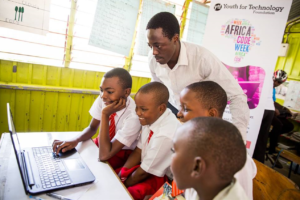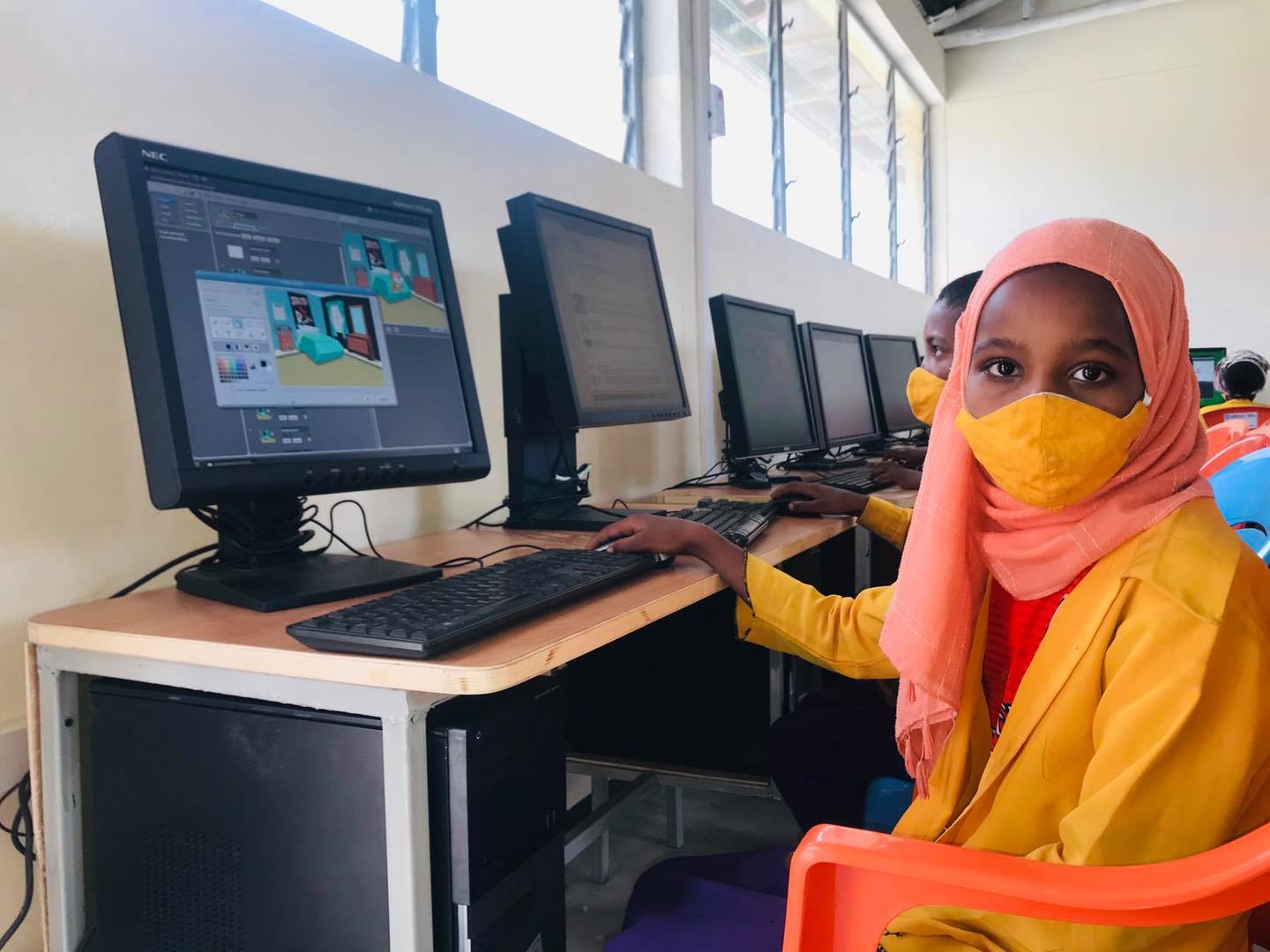October 5th is World Teacher’s Day, an annual event marked by UNESCO in recognition of the invaluable contribution teachers make to our children’s future. With the theme this year, “Teachers at the heart of education recovery”, this year’s celebrations take stock of the huge impact of the COVID pandemic on teachers and students alike.
The year 2020 will be remembered by teachers around the world as one of adapting to new circumstances and technology. But while in developed countries, online learning merely presented challenges, in Africa the effect was catastrophic. About 97% of primary and high schools on the continent were closed, resulting in 250 million learners staying at home. On a continent which already displays wide disparities in wealth and access to technology, a disruption of this magnitude was a major setback.
The need to upskill teachers
 In fact, most teachers cited a lack of access to technology and affordability issues as the biggest barrier they faced to teach their students online during the pandemic. Before COVID, many African teachers had received little or no technology training. The lockdown forced them to adapt and innovate in order to support learners, parents and caregivers so that learning could proceed, despite the uncertainty caused by the virus.
In fact, most teachers cited a lack of access to technology and affordability issues as the biggest barrier they faced to teach their students online during the pandemic. Before COVID, many African teachers had received little or no technology training. The lockdown forced them to adapt and innovate in order to support learners, parents and caregivers so that learning could proceed, despite the uncertainty caused by the virus.
The fact that many new teachers lack digital skills is precisely why the need to upskill them is so crucial. Teachers have enormous potential to bridge the digital divide in Africa. With our annual Africa Code Week (ACW), whose launch coincides with World Teacher’s Day, SAP and global partners such as UNESCO, the Association for the Development of Education in Africa (ADEA) and Irish Aid, bring together a wealth of talent to train African teachers and students in coding and 21st century skills. Last year the program reached 1.5 million youth, of whom nearly half (48%) were girls. More than 10 500 workshops were hosted across 43 countries and 21 000 teachers were mobilised through virtual and in-person Train-the-Trainer sessions.
Teaching digital fluency
One of the driving forces behind the ACW initiative is to see African countries adopt coding as part of their school curriculum. In a survey conducted among participating countries in 2020, nine African countries indicated that coding is a part of the national curriculum, and ten more indicated they are planning to incorporate coding soon. The survey also found that 87% of respondents agreed that ACW plays an influential role in advancing the adoption of coding as a school subject.
Through the initiative’s Train-the-Trainer sessions with learners, ACW is simplifying what has historically been perceived as a highly technical area. Learning how to code is like learning a new language, a language which opens doors into the 21st century and beyond. African teachers need to be empowered to combine traditional and digital literacy in their classrooms, so that students not only learn to read and write, but to develop their creativity to experiment and find solutions which help them engage better with the world around them.
Since inception in 2015, what we have learned from ACW is that it involves participants who would normally have had no exposure to coding, apart from consuming applications on their smart phones or computers. Coding is relevant to all industries in today’s globalised economy and as a result, digital skills need to be constantly refreshed. Through our innovative public-private partnerships, we firmly believe that by sharing skills and knowledge, we will empower Africans – both teachers and learners – to take control of their futures.
There is little doubt that teachers are key to rebuilding society post-COVID because of their inestimable power to reimagine the future and reshape young people’s lives. To do this, African teachers will need to embrace the technology at their disposal in order for students to get the quality education they need to face the rigours of the digital world. African education must find new models that foreground virtual teaching to cushion it against future disruptions. As ADEA Executive Secretary Albert Nsengiyumva so aptly puts it, “Today, more than ever before, we need to adapt as quickly as possible to crises and look for alternatives to advance education and training in Africa.”



